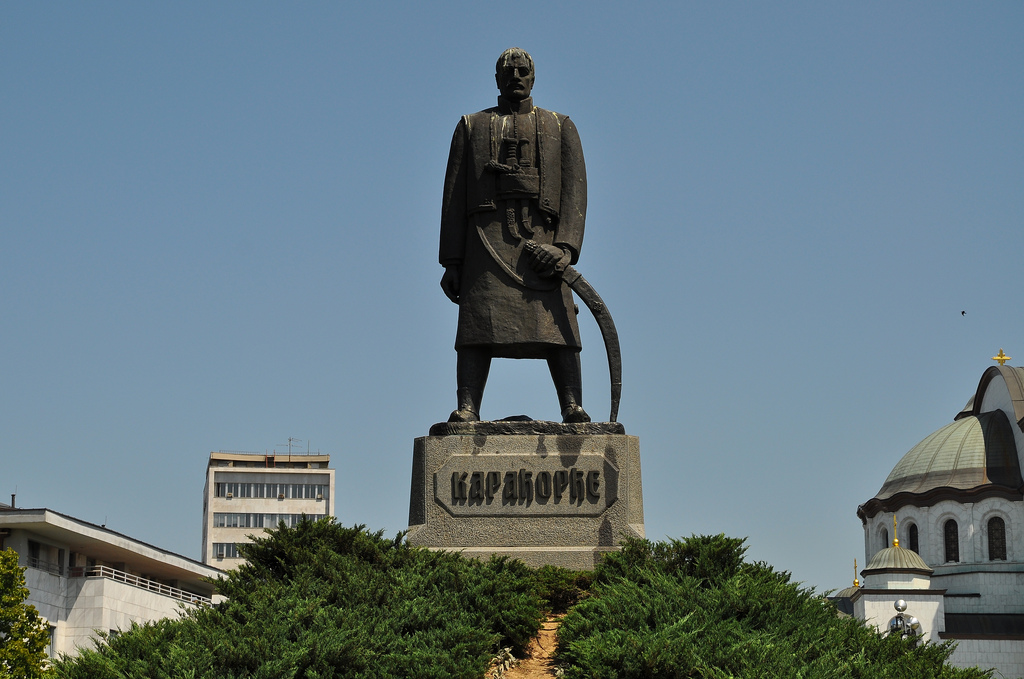|
Bjelaši
The Whites ( sr, Бјелаши, Bjelaši) was the name given to pan-Serbian and Yugoslavist activists in Montenegro during and after the declaration of the Podgorica Assembly in November 1918. The Podgorica Assembly allowed the Montenegrin people to vote on the fate of the Kingdom of Montenegro. The two options were for the Kingdom of Montenegro to join the Kingdom of Serbia through an annexation-based unification or through a confederation-based unification. The name of the Whites derived from the "White List", as opposed to the "Green List", from where the Greens took their name from. The Assembly ended with overwhelming support for annexation-based unification. The movement was led by Marko Daković, Andrija Radović and Ljubomir Vuksanović Ljubomir "Ljubo" Vuksanović was a Montenegrin lawyer who was the chairman of the National Administrative Council ( sr, Народна управа, german: Nationaler Verwaltungsausschuss) established by Germany in October 1943 in the ... [...More Info...] [...Related Items...] OR: [Wikipedia] [Google] [Baidu] |
Pan-Serbian
Serbian nationalism asserts that Serbs are a nation and promotes the cultural and political unity of Serbs. It is an ethnic nationalism, originally arising in the context of the general rise of nationalism in the Balkans under Ottoman rule, under the influence of Serbian linguist Vuk Stefanović Karadžić and Serbian statesman Ilija Garašanin. Serbian nationalism was an important factor during the Balkan Wars which contributed to the decline of the Ottoman Empire, during and after World War I when it contributed to the dissolution of the Austro-Hungarian Empire, and again during the breakup of Yugoslavia and the Yugoslav Wars of the 1990s. After 1878, Serbian nationalists merged their goals with those of Yugoslavists, and emulated the Piedmont's leading role in the ''Risorgimento'' of Italy, by claiming that Serbia sought not only to unite all Serbs in one state, but that Serbia intended to be a South Slavic Piedmont that would unite all South Slavs in one state known as Yu ... [...More Info...] [...Related Items...] OR: [Wikipedia] [Google] [Baidu] |
Marko Daković
Marko Daković (Serbian Cyrillic: Марко Даковић; Grahovo, 20 February 1880 – Athens, 16 April 1941) was a Montenegrin and Serbian politician and lawyer, independent MP in the National Assembly of Serbs, Croats and Slovenes, and minister 1941 General Simović's Cabinet. He was the leader of the movement for unification of Montenegro with the Kingdom of Serbia and Yugoslavia in 1918, and one of the most prominent figures in the political life of Montenegro in the interwar period. Daković was born on February 20, 1880 in Grahovo, in the Nikšić district of the Principality of Montenegro. He finished elementary school in his hometown, and gymnasium and the Faculty of Law in Belgrade, in the Kingdom of Serbia. Marko Daković was unofficially named the leader of the "United Serb Youth of Montenegro". He is one of the founders of the Association of Montenegrin Students at the University of Belgrade, which was critical of King Nikola's regime in Montenegro, result was a ... [...More Info...] [...Related Items...] OR: [Wikipedia] [Google] [Baidu] |
Defunct Political Parties In Montenegro
{{Disambiguation ...
Defunct (no longer in use or active) may refer to: * ''Defunct'' (video game), 2014 * Zombie process or defunct process, in Unix-like operating systems See also * * :Former entities * End-of-life product * Obsolescence Obsolescence is the state of being which occurs when an object, service, or practice is no longer maintained or required even though it may still be in good working order. It usually happens when something that is more efficient or less risky r ... [...More Info...] [...Related Items...] OR: [Wikipedia] [Google] [Baidu] |
Montenegro–Serbia Relations
Montenegrin–Serbian relations are foreign relations between Montenegro and Serbia. From 1918 until 2006 the two states were united under the Kingdom of Yugoslavia, the Socialist Federal Republic of Yugoslavia, and Serbia and Montenegro. There is controversy regarding the national identity of Montenegro due to recent political developments in the region. There is a debate on the ethnic identification of Montenegrins (whether they are Serbs or not), and the name of the national language ( Montenegrin versus Serbian). Despite this, the two countries have maintained mostly friendly relations. History Pre-Yugoslavia Before Yugoslavia existed, there was very little distinction between Serbs and Montenegrins as both peoples largely held allegiance to the Serbian Orthodox Church, which directly influenced the establishment of the Prince-Bishopric of Montenegro in 1697. Petar II Petrović-Njegoš, one of the most historic rulers of the theocratic Montenegrin Prince-Bishopric, composed ... [...More Info...] [...Related Items...] OR: [Wikipedia] [Google] [Baidu] |
Political History Of Montenegro
Politics (from , ) is the set of activities that are associated with making decisions in groups, or other forms of power relations among individuals, such as the distribution of resources or status. The branch of social science that studies politics and government is referred to as political science. It may be used positively in the context of a "political solution" which is compromising and nonviolent, or descriptively as "the art or science of government", but also often carries a negative connotation.. The concept has been defined in various ways, and different approaches have fundamentally differing views on whether it should be used extensively or limitedly, empirically or normatively, and on whether conflict or co-operation is more essential to it. A variety of methods are deployed in politics, which include promoting one's own political views among people, negotiation with other political subjects, making laws, and exercising internal and external force, including war ... [...More Info...] [...Related Items...] OR: [Wikipedia] [Google] [Baidu] |



